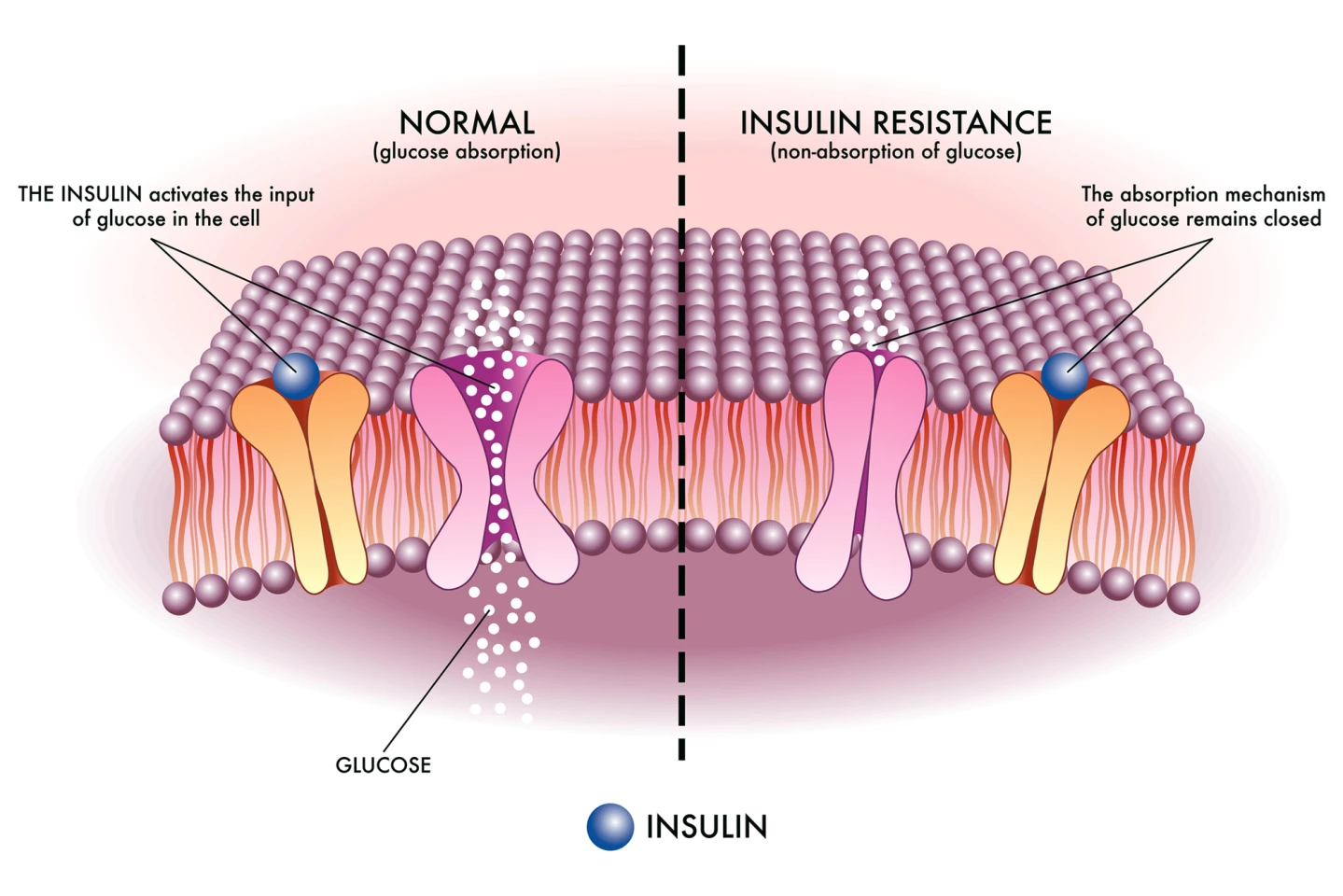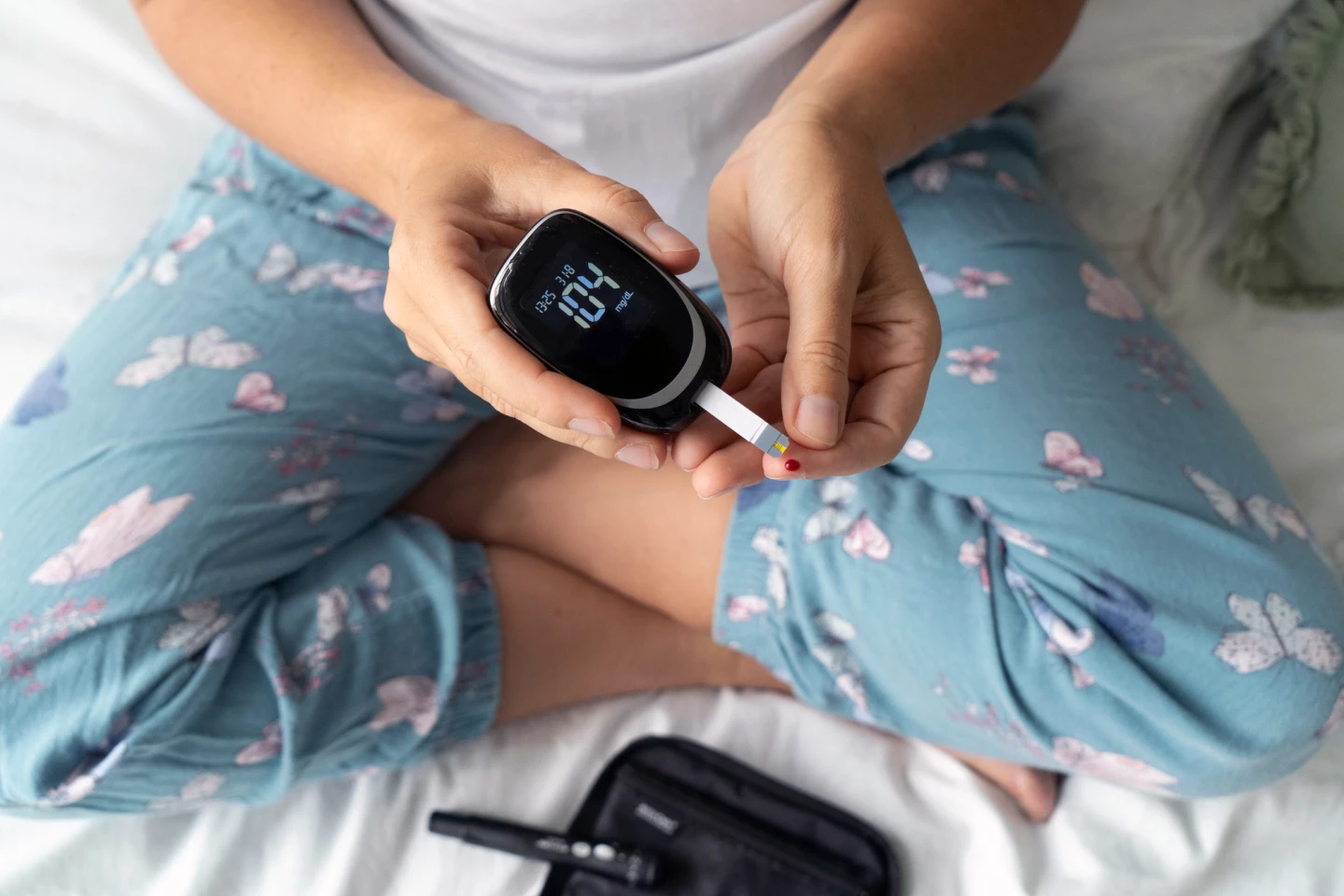The antioxidant sulforaphane, which is found in broccoli sprouts in high concentrations, can improve blood sugar levels in some people with prediabetes, according to new research. The findings suggest a need to personalize the treatment of the condition, a precursor to type 2 diabetes.
Broccoli is a nutrient-dense food with proven health benefits. Previous research has found that it can help prevent cancer, maintain heart and digestive health, and improve blood sugar levels in type 2 diabetics.
A new study led by researchers from the University of Gothenburg in Sweden found that one of the vegetable’s standout compounds, the antioxidant sulforaphane, also improved blood sugar levels in people with prediabetes, the precursor to type 2 diabetes (T2D).
“The treatment of prediabetes is currently lacking in many respects, but these new findings open the way for possible precision treatment using sulforaphane extracted from broccoli as a functional food,” said Anders Rosengren, a professor in the University’s Department of Neuroscience and Physiology and the study’s corresponding author. Rosengren was the corresponding author in previous research on the effect of sulforaphane on blood sugar control in type 2 diabetics. “However, lifestyle factors remain the foundation of any treatment for prediabetes, including exercise, healthy eating, and weight loss.”

Prediabetes is characterized by higher-than-normal blood sugar levels but not so high that they warrant a diagnosis of T2D. It usually occurs in people who have a degree of insulin resistance or whose pancreatic beta cells aren’t making enough insulin to keep blood sugars in the normal range. Current treatment of prediabetes is directed at modifying lifestyle factors such as improving diet and increasing physical activity. In some cases, medication is used to lower blood sugar levels.
A common way of screening for prediabetes is by measuring a person’s fasting blood glucose level, which is blood sugar unaffected by food and/or drink. A normal fasting glucose is usually below 5.6 mmol/L (100 mg/dL), while a level above 7.0 mmol/L (126 mg/dL) typically indicates diabetes. In prediabetics, fasting glucose levels usually sit between these two values. For the present study, 89 individuals with an impaired fasting glucose of between 6.1 and 6.9 mmol/L were recruited. Participants were overweight or obese, had an average age of 63 and an average fasting blood glucose of 6.4 mmol/L. Sixty-four per cent of participants were male.
The participants were randomized to receive broccoli sprout extract (BSE), a concentrated form of the bioactive compounds found in broccoli, particularly sulforaphane, for 12 weeks. Neither the participants nor the researchers knew who was in which group. Broccoli sprouts can contain up to 100 times more sulforaphane than mature broccoli. Only 74 participants completed all stages of the study; 15 (nine in the BSE group and six in the placebo group) dropped out due to gastrointestinal side effects, including nausea and vomiting, reflux, and diarrhea.
At the end of the 12 weeks, the BSE group had a greater average reduction in fasting blood glucose than those receiving placebo, with a mean difference of 0.2 mmol/L between the groups. A particular clinical subgroup of 13 participants had a “pronounced response” to BSE: those with mild obesity, low insulin resistance, and reduced fasting blood glucose levels. Their average reduction in fasting blood glucose was 0.4 mmol/L. The researchers called these participants ‘responders.’
The researchers used stool samples collected from participants before and after treatment with BSE or placebo and analyzed their gut microbiome. The 13 ‘responders’ were found to have a significantly different gut microbiome composition at baseline that – interestingly – didn’t change after treatment. Eleven of them belonged to the clinical subgroup mentioned in the preceding paragraph. Belonging to this sub-group, in combination with the difference in gut bacteria, produced the largest reduction in fasting blood glucose in response to BSE treatment: 0.7 mmol/L.

While the study’s full cohort didn’t reach the primary outcome the researchers hoped for – a 0.3 mmol/L reduction in fasting blood sugar – they said their findings were important nonetheless.
“This trial shows that the response to sulforaphane-containing BSE in individuals with impaired fasting glucose differs based on the host pathophysiology and gut microbiota,” said the researchers. “Taken together, this indicates a need to personalize interventions in prediabetes, considering that many compounds have moderate overall efficacy but considerable impact in certain subgroups, and these findings represent a step towards precision treatment of prediabetes based on the individual pathophysiology and gut microbiota.”
One of the study’s limitations, namely that the 12-week treatment time didn’t allow for analysis of the long-term effects of BSE on blood sugar control, would need to be addressed in future studies. As would the small sample size.
For prediabetics who don’t like the taste of broccoli but still want to avail themselves of the potential blood-sugar-lowering effects of sulforaphane, a simple internet search for ‘sulforaphane supplements’ will direct you to retailers who sell the antioxidant in capsule form. Don’t go overboard, though – keep in mind the reason people dropped out of this study early.
The study was published in the journal Nature Microbiology.
Source: University of Gothenburg







